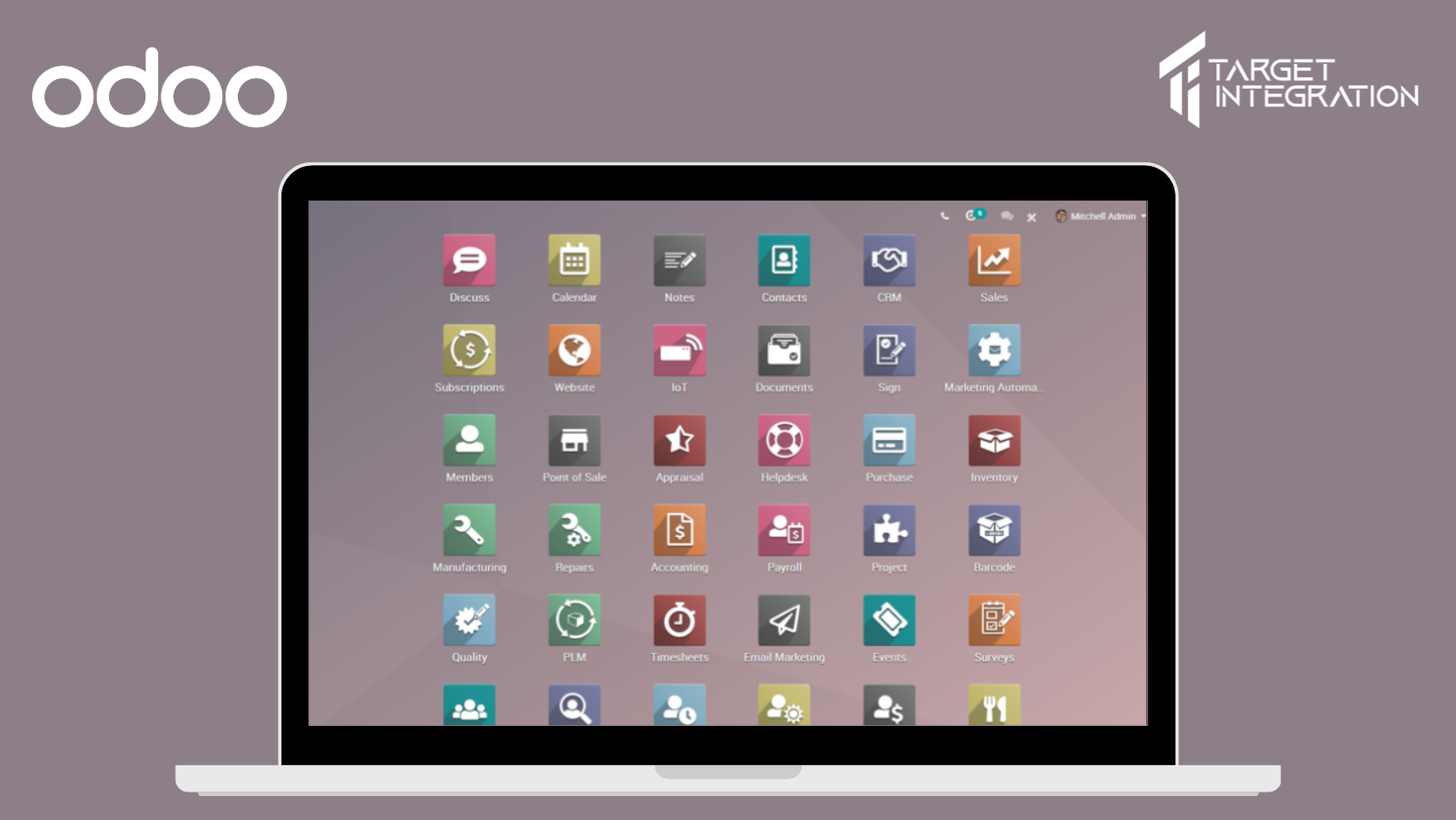Odoo is a versatile and popular open-source Enterprise Resource Planning (ERP) software that provides a comprehensive suite of business applications. It was founded in 2002 and has gained a solid global presence, attracting a large community of developers, users, and Odoo implementation partners. In this article, we will explore what Odoo is, its various models, what makes it unique, the type of companies that can benefit the most from it, its advantages, and its disadvantages.

What is Odoo?
Odoo is an all-in-one ERP solution that covers various aspects of business operations. It offers multiple modules that encompass essential business functions such as sales, purchases, inventory, accounting, human resources, etc. Additionally, Odoo’s open-source nature allows businesses to customize and extend the software to suit their needs.
How many types of models are there in Odoo?
In Odoo, there are primarily two types of models: Odoo predefined models and custom models created by developers. The predefined models address standard business processes and come bundled with Odoo’s core installation. On the other hand, Odoo’s flexibility allows developers to create custom models tailored to unique business requirements. This combination of predefined and custom models empowers businesses to manage their operations efficiently and adapt to changing needs seamlessly.
What is unique about Odoo?
Several factors make Odoo stand out in the ERP software landscape:
Modular Architecture
Odoo’s modular architecture enables businesses to start small and gradually expand their ERP system as their needs evolve. Organizations can choose the specific modules they require and add new ones as they grow, avoiding unnecessary complexity.
Open Source
As an open-source solution, Odoo’s source code is freely available. This fosters innovation and collaboration within the community, resulting in continuous improvements and a vast selection of third-party apps and extensions.
User-Friendly Interface
Odoo features an intuitive and user-friendly interface, making it accessible to users with varying technical expertise. Its straightforward navigation and interactive dashboards enhance user experience and encourage wider adoption.
What makes Odoo different?
Odoo’s key differentiators are:
Full-Featured Solution
Unlike other ERP systems that require additional third-party software for certain functionalities, Odoo provides a comprehensive suite of integrated applications. This eliminates the need for multiple software solutions and ensures seamless data flow across various business processes.
Customizability
Odoo’s open-source nature allows businesses to customize the software to meet their needs. This level of flexibility is particularly advantageous for industries with unique workflows or processes.
Community and Partners
Odoo has a vibrant and active community comprising developers, users, and Odoo implementation partners. The collaboration between the community and partners ensures ongoing support, regular updates, and a vast repository of apps and extensions.
What type of companies can benefit the most from Odoo?
Odoo’s versatility caters to a broad spectrum of companies, but the following types can benefit the most:
Small and Medium-Sized Enterprises (SMEs)
SMEs often have limited resources and need a cost-effective ERP solution that can grow with them. Odoo’s modular approach and scalability make it an ideal fit for these businesses.
Diverse Business Types
Odoo’s ability to handle various business processes and industries, including retail, manufacturing, services, e-commerce, and more, suits companies with diverse operations.
Startups and Growing Businesses
Startups and rapidly expanding businesses require agility and the ability to adapt quickly. Odoo’s customizable nature enables these companies to mold the ERP system according to their evolving needs.

What are the benefits of Odoo?
Odoo offers numerous benefits to companies of all sizes:
- Integrated Solution: Odoo’s all-in-one platform streamlines business operations by centralizing data and processes. With its comprehensive suite of applications, Odoo reduces the need for multiple software applications, providing a unified environment for managing various business functions efficiently.
- Customization: One of Odoo’s significant strengths is its customizability. Businesses can tailor the ERP system to their unique workflows and specific requirements. This flexibility allows companies to mold Odoo according to their distinct business processes, ensuring a personalized and optimized experience.
- Scalability: Odoo’s modular structure allows businesses to start with the necessary modules and expand the system as they grow. As business needs to evolve and change, Odoo’s scalable nature ensures that the ERP solution can adapt to accommodate increasing complexities and demands.
- Cost-Effective: As an open-source ERP solution, Odoo eliminates licensing costs associated with proprietary software. Businesses can freely use, modify, and distribute Odoo’s source code, resulting in a lower total ownership cost than proprietary ERP systems.
- Active Community: Odoo boasts a thriving and dynamic community of developers, users, and enthusiasts. This collaborative community contributes to continuous development, regular updates, and various third-party apps and extensions. As a result, Odoo users have access to a wealth of resources to enhance the software’s functionality.
- Odoo Partners: Working with an Odoo implementation partner can significantly benefit businesses. An Odoo implementation partner possesses expertise in integrating, customizing, and supporting Odoo installations. They can provide valuable guidance, best practices, and technical know-how to help businesses make the most of Odoo’s features. An Odoo implementation partner also ensures a smooth implementation process, leading to a successful ERP integration.
What is the disadvantage of using Odoo?
While Odoo offers many benefits, it also has some disadvantages to consider:
- The complexity of Customization: Odoo’s customizability is one of its strengths, allowing businesses to tailor the ERP system to their unique needs. However, complex customizations may require expert development skills and could result in increased implementation costs. Companies should carefully assess their customization requirements and seek professional assistance if needed and, in this case, a certified Odoo implementation partner.
- Support and Maintenance: Businesses heavily relying on Odoo must ensure they can access reliable support and maintenance services. Timely and efficient support becomes crucial, especially when issues or questions arise during critical periods. Partnering with an experienced Odoo implementation partner can be beneficial in this regard.
- Learning Curve: Implementing a new ERP system, such as Odoo, involves a learning curve for employees. They need time to adapt to the new processes and functionalities, which might increase productivity during the transition phase. Proper training and support can mitigate this challenge.
- System Updates: Odoo regularly releases updates to enhance functionality, security, and performance. While updates are essential for staying current with the latest features, they may occasionally lead to compatibility issues with existing customizations and third-party apps. This might require additional development work to resolve any conflicts.
To conclude
Odoo’s strengths as an open-source, customizable, and comprehensive ERP system make it an appealing choice for businesses seeking an integrated solution to streamline their operations. By partnering with an Odoo implementation partner, companies can optimize their Odoo usage and maximize the software’s benefits. However, like any ERP system, Odoo has its challenges, and businesses should carefully assess their specific needs and resources before embarking on an implementation journey.





